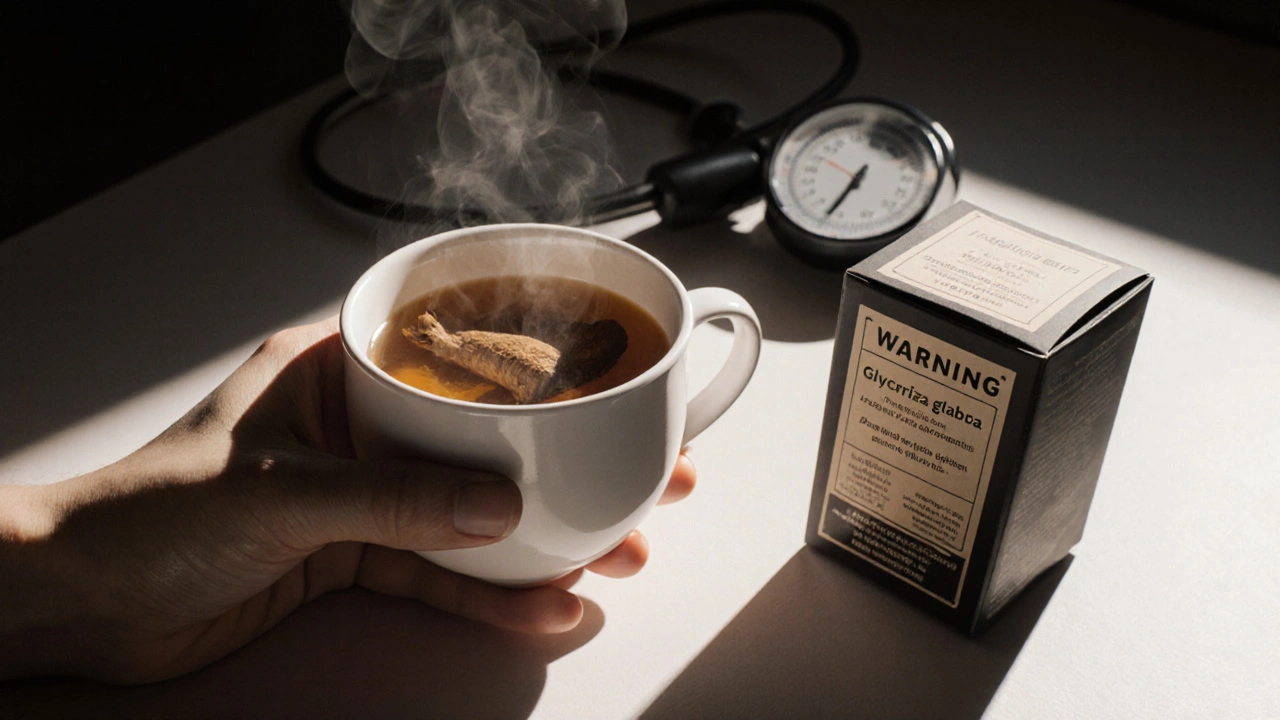Some herbs commonly used for energy, stress, or digestion can dangerously raise blood pressure. Learn which 7 herbs to avoid if you have hypertension - and what safer alternatives exist.
Read MoreBlood Pressure Increasing Herbs: What Actually Raises Your Numbers
When you think of herbs for health, you probably imagine calming teas or natural ways to lower blood pressure. But not all herbs help—some can actually raise blood pressure. These aren’t myths or old wives’ tales. Certain plants used in traditional medicine, including Ayurveda and other Indian healing systems, contain compounds that stimulate the nervous system, constrict blood vessels, or interfere with medications. If you’re managing hypertension, or even just watching your numbers, skipping these herbs could be as important as taking your pills.
Blood pressure increasing herbs, plants and botanicals known to elevate systolic or diastolic readings through physiological effects. Also known as hypertension-triggering herbs, they include licorice root, ephedra, yohimbe, and even some forms of ginseng. These aren’t dangerous in small amounts for healthy people, but for someone with high blood pressure, heart disease, or on beta-blockers or ACE inhibitors, even a daily cup of licorice tea can undo weeks of progress. Licorice, for example, contains glycyrrhizin, which mimics aldosterone—a hormone that makes your body hold onto salt and water. That extra fluid increases pressure in your arteries. It’s not guesswork. Studies show this effect clearly, even at doses found in herbal supplements. Another common culprit is ephedra, a stimulant herb once used in weight loss and energy supplements, now banned in many countries. Also known as ma huang, it triggers adrenaline release, spikes heart rate, and tightens blood vessels. Even if you don’t take it directly, it’s sometimes hidden in blends labeled as "natural energy boosters" or "Ayurvedic tonics." Then there’s yohimbe, an extract from African tree bark used for libido and weight loss. Also known as yohimbine, it acts on the sympathetic nervous system and can cause sudden, dangerous spikes in blood pressure—especially when mixed with caffeine or antidepressants. These aren’t just side effects. They’re direct, measurable actions on your body’s systems.
Here’s the real problem: most people assume "natural" means "safe." But if you’re taking blood pressure medication, mixing it with these herbs is like stepping on the gas while trying to brake. Your doctor might not ask about your herbal tea or supplement routine. That’s why you need to know what’s in your cup or capsule. Even something as simple as a turmeric supplement can contain added black pepper (piperine), which increases absorption—not just of turmeric, but of any other active compounds in your system, including those that raise blood pressure. Always check labels. Look for ingredients you don’t recognize. Ask your pharmacist. And if you’re unsure, skip it. There’s no benefit worth risking your numbers.
What you’ll find in the posts below are real examples of herbs and supplements that can push your blood pressure up—not the ones you hear about on wellness blogs, but the ones actually causing problems in clinics and homes across India. You’ll see how Ayurvedic preparations, often trusted without question, can carry hidden risks. You’ll learn how to read supplement labels to spot trouble ingredients. And you’ll get straight answers on what to avoid if you’re trying to keep your pressure under control. No fluff. No hype. Just what you need to know to stay safe.





